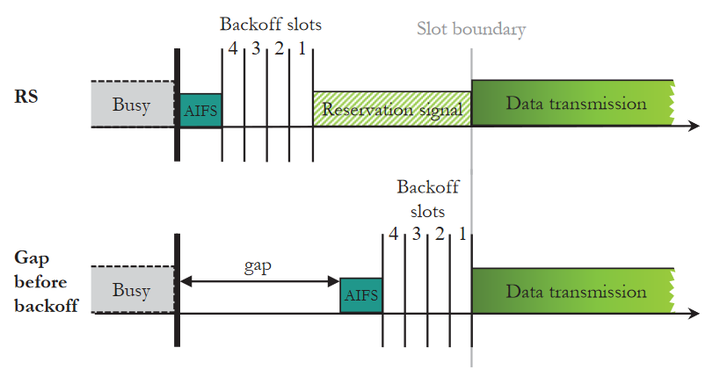 Two approaches to aligning an NR-U channel access to the slot boundary: reservation signal (top) and gap (bottom).
Two approaches to aligning an NR-U channel access to the slot boundary: reservation signal (top) and gap (bottom).
Abstract
Wireless technologies coexisting in unlicensed bands should receive a fair share of the available channel resources, even when they use different access methods. We consider the problem of coexistence between Wi-Fi and New Radio Unlicensed (NR-U) nodes, which employ, respectively, a random and scheduled access scheme. The latter typically resorts to reservation signals (RSs), which allow keeping the control of the channel until the start of the next synchronized slot. This mechanism, although effective for increasing the channel access opportunities of scheduled-based nodes, is also a waste of channel resources. We investigate alternative solutions, based on self-deferral only. We built analytical and simulations models for a Wi-Fi and NR-U coexistence scenario and found that (a) airtime fairness can be achieved with proper contention window (CW) settings and (b) this solution can be exploited for optimizing network performance for both Wi-Fi and NR-U. Additionally, we demonstrate how an artificial recurrent neural network-based regression model can be applied to predict such proper CW settings. Our research confirms that by embedding contending devices with machine learning intelligence in CW selection, scheduled-based systems such as NR-U do not have to resort to RSs.
Winner of Best Paper Award 🏆